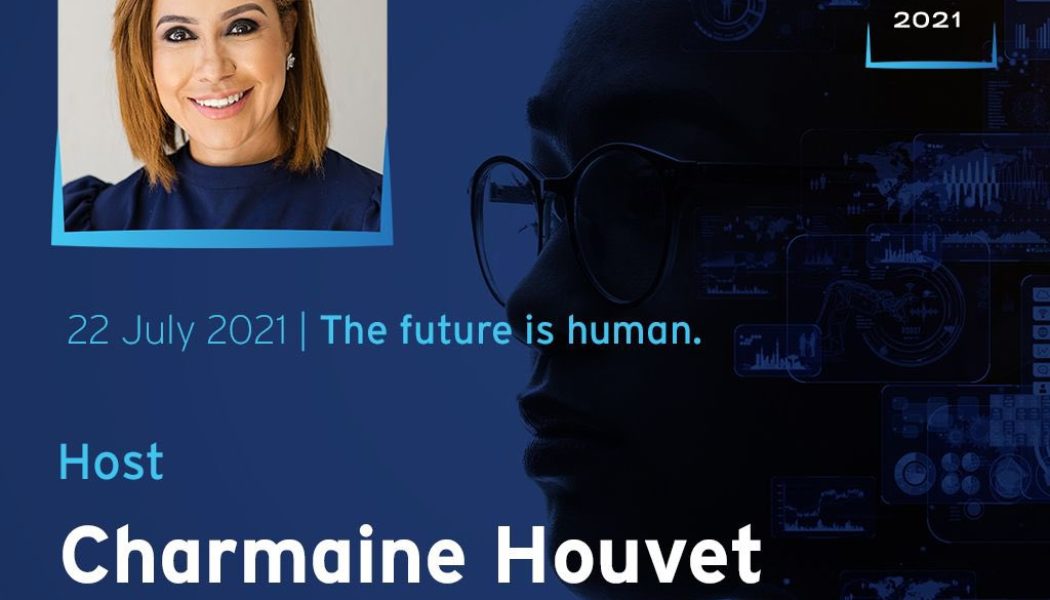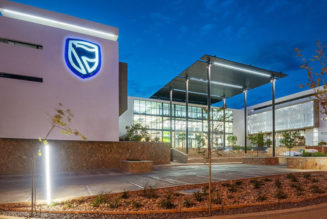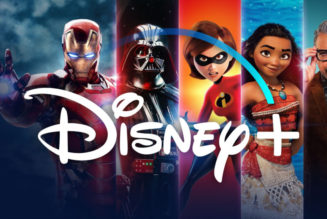August is Women’s Month in South Africa – and this month IT News Africa has been connecting with women in technology to provide needed signal-boosting for individuals in an industry that, especially in Africa, is male-dominated.
ITNA’s Luis Monzon had the opportunity to talk to Charmaine Houvet, Senior Director: Africa at Cisco about the internet of the future, that is, the hopes of the industry to create an all-inclusive internet that will one day close the digital divide.
Charmaine has over two decades of telecommunications experience working with private and public sector organizations across Africa. She joined Cisco with several years’ experience as a Senior Executive in diverse roles within high profile leading ICT companies.
She also serves as Chair of the ICT Industry Association on the South African Communications Forum (SACF), as well as other committees such as the Advisory Board of the Global Broadband Plan for Refugees Project, the Cisco Technology Systems (CTS) local board, and she chairs the Policy and Law reform workstream of the Presidential 4IR commission under SA President Cyril Ramaphosa.
Charmaine is passionate about transformation and the advancement of the ICT sector, especially for women. She is also the recipient of several business awards in recognition of her vision, collaboration, leadership, and achievements in the ICT sector.
Here’s what transpired:
When talking about the digital divide, and digital inclusion in Africa – making sure that more people can become connected.
- How can connectivity help bridge this digital divide? And how can increasing this connectivity help people affected by digital exclusion?
I’ve always looked at this as an access issue. I’ve always thought, you know what, if I were to influence government and partner with government and we address access, then that will be enough.
But the pandemic has exposed the real issues for Africa in terms of digital inclusion, issues around affordability, and the quality of the coverage.
I think the most difficult thing to overcome, for me, is around digital skills and how, before, I never understood how important it is, not only just for our children but even just for everyday citizens, right?
Because I think work from home hits us all very hard. And I realised during my early engagements with government, how difficult it was even just for ordinary citizens, just to get them online to have a WebEx call or to have a Team’s online meeting. There is an inherent difficulty in getting people connected. I think this was a big wake up call for me.
I think with this whole connectivity issue – we took a lot of things for granted before the pandemic. I’ll take it to my own situation. The issue became so real for me when we couldn’t access banking physically to send money home to family because accessing physical spaces became prohibited.
Now we’re also seeing the difficulties with trying to get families in rural areas to register for the vaccination, which means trying to increase connectivity in E-health. Now we start to realise what a challenge this is.
At the beginning of the pandemic, Cisco reached out to governments across the continent, and we offered the Cisco Colab (Collaboration) technology to them and many of our governments were very relaxed about this. And we told them that “this technology can keep you connected, keep your families connected, keep people in hospitals connected, keep schools connected,” but yet there was not a big reach out.
But I think as the severity of the lockdown was evident, suddenly people started reaching out to us. One case that comes to mind was Chris Hani-Baragwanath Hospital, where we worked with government to actually provide them with Colab technology, whereby doctors were able to use some of our devices to remotely diagnose patients.
And if you recall, during lockdown level 5, doctors were not even able to see patients face to face. Many patients in ICU had to be remotely diagnosed.
Another thing that hit home for me was seeing the number of children who were unable to not just connect, but those that didn’t have access to devices to connect. Here the digital literacy aspect steps in again.
So many of these children are being left behind, further increasing that gap. During the lockdown there were so many areas that were unable to, because of connectivity problems, continue with learning.
I think a true digital economy only works when everybody has equal access. And I think as we’re working towards hybrid environments, we’re going to see more that are left behind.
The accelerating disparities of the digital divide are real for the unconnected, unfortunately.
In South Africa, the digital divide is a very complicated problem. There’s a lot of complexities and layers.
- What challenges do you think hamper South Africa or other African countries from reaching to the other side and attempting to close the divide a bit further?
So I think a big portion of it has to be around smart policies and legislation. If you look at many of our policies, they prioritise digitisation. In none of these policies, do we try to address that you have duplication and fragmentation across various systems.
This is where we have to start stepping in and pushing for more collaborative efforts and attempts to bring the different players in the sector to the table to start driving and leading. We saw a lot of this ownership taking place during the lockdown. I was amazed – We invited the Minister of ICT (at the time) to the table and various other players from city of Johannesburg, various other council players, even the regulator, to highlight where we thought in the absence of enabling policies, we could have a temporary solution.
So if you recall, at the beginning of lockdown, the Minister of ICT stepped up and allowed temporary spectrum to be gazetted.
Since like 2013 – 2014, we’ve been debating over spectrum and the requirements to access this spectrum so we could bring down the prices.
And litigation seemed to be going on in circles. So I think through that collaboration with policymakers, that education and awareness, we were able to go beyond the current policies and legislation.
Even on the advent of “zero-rating” – we worked with a lot of operators to tell them about democratising access to digital platforms. Again, coming back to the cost issue. A lot of the operators stepped up and they actually zero rated their platforms.
The lockdown has definitely accelerated digital transformation across the board, and Charmaine, you’ve written about the internet of the future, which is supposedly a fast, affordable internet that everyone can take part in.
- What is the internet of the future exactly?
I think a big portion and a point of departure for us here was that we’ve been looking to collaborate with a large majority of our partner ecosystem.
Mobile and fixed internet operators are very critical components and partners to Cisco around how we bring different technologies to market. We recently announced a new strategy where we seek to help network operators grow and extend the internet to more areas that would go beyond geographic limitations – We call this the internet of the future.
Cisco was very clear from the beginning of this announcement that this will be both a challenge and an opportunity. I think a big portion of it was changing the dynamics and the economics of how we built infrastructure for the Internet and overcoming some of the current performance and power consumption limitations.
We figured out a way to get faster, more powerful networks by working with our partners and our customers to introduce simplicity in terms of how we build these different components. Challenges including things like, how to lower the costs of the end to end value chain to deliver new services, and also new technologies to customers and citizens.
Because the value chain across the different components we work with is cheaper, it’s much more cost-effective for customers. We’re also looking at issues of sustainability, issues of affordability. A more affordable, but still quality internet means that we are able then to address issues around education, health and these other opportunities.
And also, by lowering the cost of what it takes to run the internet, we then make sure that internet access becomes equitable for more people.
- What can organisations and companies do to accelerate the reach of this internet of the future and to take this step towards digital transformation and towards Digital Inclusion?
A big component of this is that even if you look now, the majority of people who are accessing the internet have been doing so on mobile devices. And if you look at the smartphone, there’s so much that is available there already.
This, I believe, is already a step in the right direction.
In addition to operators who want to build these lean, efficient, easy to operate networks, that can support the different next-generation wireless technologies, Cisco is also supporting and collaborating with government to start to actually bring these technologies to the fore to close that digital divide.
Two years ago, we decided to partner closely with government on a very important initiative, which Cisco started globally called “Country Digital Acceleration“.
What Country Digital Acceleration is, in a nutshell, it works with government leaders to encourage innovation. I was actually quite involved in the process, what we did was to go to different governments leaders, and look at the government sites which are not being used currently.
So one of them is the Innovation Centre, and there are many more, and we work with academia, with government, with some of our partners and we brought a mix of network technologies expertise into these centres.
We brought in a few SMEs and industry players to show that we could actually get government to use their access to broadband, and access to connectivity in these centres.
We started showcasing some of the external technologies and some of the state of the art technologies that we installed at these sites.
We brought in some of these young, innovative resellers and partners and property owners to start to figure out how do they start building on the Cisco networks and Cisco platforms to actually start to increase the connectivity through to a wider audience and, currently, those sites are fully up and running.
I think this is just one of the very small examples of how we are using some of our technology, leveraging our partners, using a variety of government players especially to not just connect but to start to expand how we close that digital divide.
By Luis Monzon
Follow Luis Monzon on Twitter
Follow IT News Africa on Twitter










